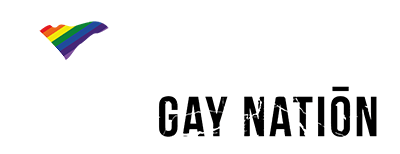
Depression, we never talked about it or if it was brought up it would be brushed off as nothing. I almost didn’t write about this. It wasn’t that I didn’t want to, it’s just that I always had ongoing issues talking about that word. “Depression”. I believe others have the same feeling when it’s brought up in conversation. So why not use this opportunity to address it? A lot of us in our community have experienced that feeling, some more than others, in turn leading to dire consequences.
In many cases, mental illness and being LGBTQAI+ go hand in hand. Our young LGBTQAI+ generations are four times more likely to kill themselves than heterosexuals. I have come to know, witnessing it in my own pacific family that more than half of transgender brothers and sisters’ suffer from depression or anxiety. It is a difficult point to make, but it is what our community struggles with.
I have experienced both sides of the culture divided on how the LGBTQAI+ community were viewed and treated in the past, and also in today’s society. I know first-hand how alone you can feel when you’re growing up in two different cultures, with different perspectives on the subject of LGBTQAI+.
Even between my gay friends and I, we have a common understanding that we have probably all been a victim in the same way, shape or form to feel like we were inadequate from our own community, friends and family. We rarely acknowledge this issue even within the safety of our friendships. We don’t realise the full effect this has on our self-worth.

Being raised in the islands at a young age, I was free to act in the mannerisms others considered similar to a girl, a word used to describe me would be “Fafafenie.” It was light-hearted at the time and I didn’t take notice of it as it didn’t have much effect on me. It gave me the freedom to be myself.
I noticed as I got older that my circle of friends and I weren’t quite the same. I wasn’t much of a sports player and wasn’t like the rest of the boys wanting to play ruby in every free moment of the day. I knew I was different but I didn’t want others to see it. I spent most of my life trying my best to hide behind excuses and girls, trying to convince myself to be more like them. In my mind, I was fighting a battle of always keeping a smile on my face that wasn’t real, and I was always losing.
I began to question what I had done wrong in my younger years and also question if was born the wrong gender. I went on a downward spiral feeling lost and confused, and more alone than anything else being so far away in the farmlands. My saving grace was finding people that understood me and supported me; a safe place where I could grow into my own person. I used outlets like social media to share my story and connect with like-minded people. It helped me make connections, strong friendships and relationships.
Fast forward 19 years later, now in my late 20s, I have grown into a man that has learnt many things. Indeed, the word “depression” still has a bite to it, in the same way the word “gay” did when I first had the courage to say it to someone else in reference to myself.
Talking about depression is reaching out to people in our community and having the hard conversations. I have experienced this first hand, and with the support of others, I have found ways of working through my own battles with depression. It’s important we tell our stories.
If you are LGBTQAI+ and you suffer from depression of any kind or mental illness, accept it as you would accept your sexuality or gender identity. Speak up about it and share your story, your ideas and thoughts are always valid and valued. After all, our community is known to be fighters and we should not be afraid to show our scars.
If we can’t learn from our past we are doomed to repeat it in the future.
Last Updated on Feb 2, 2019
The news team for Gay Nation love tips from our readers. Got tips or a news story that you would like published? Go here to tell us something.
Visit the Gay Nation store Now





























